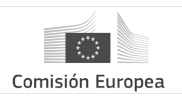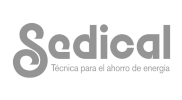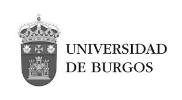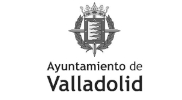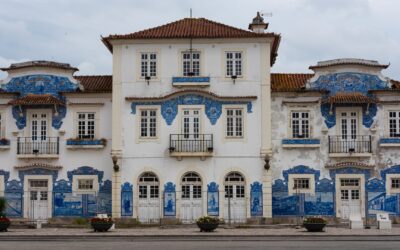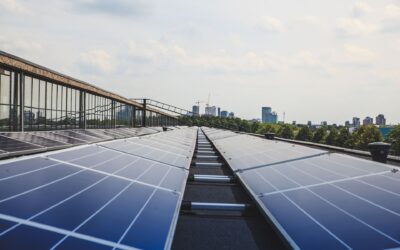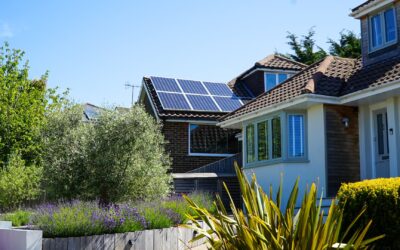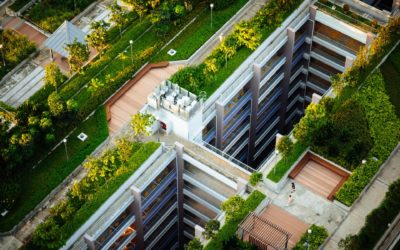Energy Efficiency
Energy saving

RESEARCH AREAS
Energy Efficiency
Description
We offer our knowledge and ITC tools to support the design and maintenance of new buildings and energy efficient retrofitting projects, nearly zero-energy buildings and Positive Energy Districts (PEDs). To this aim we integrate innovative technologies to model, characterize and propose advanced and holistic solutions that combine the most promising technologies (passive and active) available in the market.
Our ICT developments allow us to manage buildings more efficiently, through the modelling and digitalization of their information, and implement advanced control strategies to optimize the use of energy while improving the indoor comfort conditions.
We energy audit existing buildings, analyse the energy consumption and propose measures to improve their energy efficiency and indoor comfort conditions.
Research lines
- Research in advance and intelligent strategies for the management, operation and maintenance of buildings based in AI/ML/DL for the generation of decision support systems.
- Application of digital enabling technologies for the improvement of buildings sustainability and intelligence.
- Building digitalization and generation of digital twins.
- Application of blockchain technology in the energy area.
Networks and Platforms
- A.SPIRE: A.SPIRE.
- ECTP: European Construction Technology Platform.
- EFFRA: European Factories of the Future Research Association.
- ISES: International Solar Energy Society.
- MANUFUTURE: MANUFUTURE.
Publications
- Álvarez-Díaz, S., Mulero-Palencia, S., Andrés-Chicote, M., Martarelli, M. An innovative approach to automate BIM data retrieval and processing for building acoustic comfort calculations based on the IFC standard. Journal of Building and Environment, Sep 2024. https://doi.org/10.1016/j.buildenv.2024.112072
- García-Fuentes, M.Á.; Álvarez, S.; Serna, V.; Pousse, M.; Meiss, A. “Integration of Prioritisation Criteria in the Design of Energy Efficient Retrofitting Projects at District Scale: A Case Study” Sustainability 2019, 11, 3861. DOI: 10.3390/su11143861.
- García-Fuentes, M.Á.; Serna, V.; Hernández, G.; Meiss, A. An Evaluation Framework to Support Optimisation of Scenarios for Energy Efficient Retrofitting of Buildings at the District Level. Appl. Sci. 2019, 9, 2448. DOI: 10.3390/app9122448.
- García-Fuentes M.Á., Hernández G., Serna V., Martín S., Álvarez S., Lilis G.N., Giannakis G., Katsigarakis K., Mabe L., Oregi X., Manjarres D., El Ridouane H., De Tommasi L.,”OptEEmAL: Decision-support tool for the design of energy retrofitting projects at district level”, IOP Conference Series: Earth and Environmental Science, Central Europe towards Sustainable Building (CESB19), Prague, Czech Republic, Volume 290 012129, July 2-4, 2019. DOI: 10.1088/1755-1315/290/1/012129.
- Martín S., Serna V.I., Álvarez S., García M.Á., Hernández G., Sicilia A., Costa G., “OptEEmAL: IT-Supported design tool for the generation of optimised energy retrofitting scenarios at district level”, 2019 European Conference on Computing in Construction (EC3 2019), Chania, Crete, Greece, July 10-12, 2019, pp. 246 – 255. DOI: 10.35490/EC3.2019.169.
- Sanz, R. & Álvarez-Díaz, Sonia & Valmaseda, Cesar & Rovas, Dimitrios. (2018). Automatic development of Building Automation Control Network (BACN) using IFC4-based BIM models. DOI: 10.1201/9780429506215-28.
- Hernández, J.L., Martín Lerones, P.; Bonsma, P., van Delft, A., Deighton, R., Braun, J.D. (2018). “An IFC Interoperability Framework for Self-Inspection Process in Buildings”. Buildings, 8, 32. DOI: 10.3390/buildings8020032.
- Hernández, J.L., Sanz, R., Corredera, Á., Palomar, R., Lacave, I. (2018). “A Fuzzy-Based Building Energy Management System for Energy Efficiency”. Buildings, 8(2), 14. DOI: 10.3390/buildings8020014.
- Corredera, Alvaro & Macía, Andrés & Sanz, Roberto & Hernandez, Jose. (2016). An automated monitoring system for surveillance and KPI calculation. 1-6. DOI: 10.1109/EESMS.2016.7504806.
- S. Martin, J. Hernandez and C. Valmaseda, “A novel middleware for smart grid data exchange towards the energy efficiency in buildings,” 2015 International Conference and Workshops on Networked Systems (NetSys), Cottbus, 2015, pp. 1-8. DOI: 10.1109/NetSys.2015.7089063.
- Sanz-Jimeno, R., Álvarez-Díaz, S. A tool based on the industry foundation classes standard for dynamic data collection and automatic generation of building automation control networks. Journal of Building Engineering, vol. 78, p. 107625, Nov. 2023. https://doi.org/10.1016/j.jobe.2023.107625
- Mulero-Palencia S, Álvarez-Díaz S, Andrés-Chicote M. Machine Learning for the Improvement of Deep Renovation Building Projects Using As-Built BIM Models. Sustainability. 2021; 13(12):6576. https://doi.org/10.3390/su13126576
Reference clients:
Team

Ali Vasallo Belver
Head of Energy Division

Susana Martín Toral
Head of Energy Efficiency Area
Related projects
ENERGYGUARD
The EnergyGuard project will create an innovative test platform for artificial intelligence (AI) in the energy sector, integrating five European test centres with a green HPC infrastructure.
SIRCULAR
SIRCULAR seeks to transform the construction sector into a sustainable, low-carbon industry through decarbonisation strategies. Its main objective is to reduce carbon emissions by minimising reliance on virgin materials and exploring low-carbon alternatives, such as recycled materials.
SMARTeeSTORY
SMARTeeSTORY will create an integrated intelligent building automation and control system to monitor and optimise the energy performance of historic non-residential buildings, according to an innovative multi-domain approach (integrating the 9 domains proposed by the ISR methodology).
FoSSIS3
FoSSIS3 objective is to develop an operational Platform based on artificial intelligence to support decision-making in the energy planning process, through the characterization and estimation of the solar resources, and the development of analytics that support the strategy to improve the energy behavior of the building sector.
BuildON
BuildOn pretends to develop a generic solution and highly replicable to offer services on buildings, facilitate the integration of their systems and technologies and with it, help to construct a new generation of smart buildings.
ENFLATE
ENFLATE applies technologies on data-driven energy and non-energy services, which it will replicate in different geographies and climates, considering different consumer needs.
DIGIBUILD
DigiBUILD overview is to provide an open, interoperable, cloud-based toolbox to transform buildings from traditional `silos´ into interoperable, smarter, digital buildings based on consistent and reliable data
DEDALUS
DEDALUS will design, develop and demonstrate micro (home/flat) and macro (building and district) participatory demand response ecosystems in multiple energy vector systems and with a social and human science based approach
MATRYCS
The main objective of MATRYCS is to define and deploy a Reference Architecture for Buildings Data exchange, management and real-time processing, and to translate this reference architecture into an Open, Cloud-based Data Analytics Toolbox. It will enable AI-based cross-sector analytics for smart energy-efficient buildings, based on seamless data-information-knowledge exchange under respective sovereignty and regulatory principles.
PROBONO
PROBONO brings together a European multidisciplinary consortium of 47 partners, to turn the six European districts into Green Building Neighbourhoods, with positive energy balance and zero carbon emissions: two large-scale demonstrators and four living labs representing business/owner promoters of the green buildings and neighbourhoods transition.



